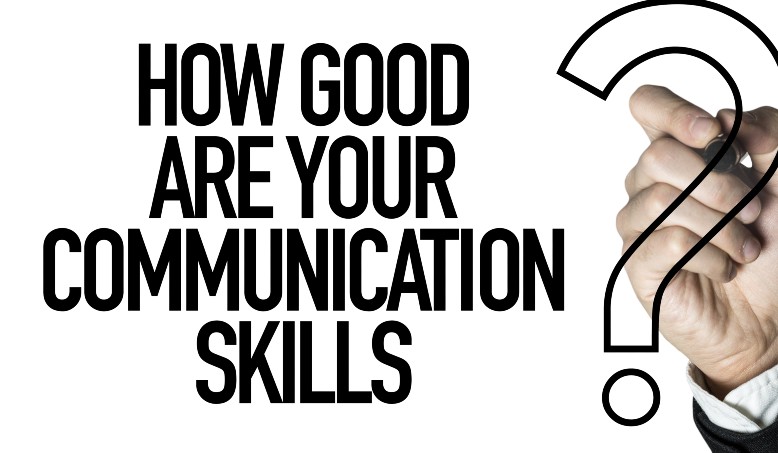Hello lovely people! Hope you are doing fantastic in your life.
Have you ever wondered why people react the way they do when it comes to you?
Have you ever asked yourself where you are going wrong?
Yesss! Communication…………..!
Communication is the lifeblood of
relationships, and mastering this art can transform the way we connect with
others, both personally and professionally. Whether you're navigating a
romantic partnership, collaborating with colleagues, or seeking to mend broken
ties, the ability to communicate effectively is essential.
Come! Let’s delve into the
nuances of effective communication, exploring proven strategies to enhance our
interpersonal skills, overcome communication barriers, and foster healthier
connections. From active listening techniques to nonverbal cues, conflict
resolution strategies to empathy-building exercises, we'll equip you with
practical tools to navigate the intricate web of human interaction.
Let’s together uncover the secrets
to expressing your thoughts and emotions with clarity, empathy, and
understanding. Discover how effective communication can bridge gaps, resolve
conflicts, and create harmonious relationships in both personal and
professional spheres. Are you ready to embark on this transformative journey?
Let's dive in and unlock the power of effective communication.
The Importance of Effective Communication
Effective communication is of
utmost importance in every aspect of our lives, from personal relationships to
professional endeavours. By honing this crucial skill, we can forge stronger
connections, avoid misunderstandings, and foster a harmonious environment.
Effective communication involves
active listening, where we genuinely focus on understanding the speaker's
message.
Nonverbal cues such as facial
expressions, gestures, and tone of voice convey additional layers of meaning
and help us interpret messages accurately.
Constructive feedback and
conflict resolution techniques enable us to navigate disagreements with empathy
and find mutually beneficial solutions.
Developing empathy and emotional
intelligence allows us to connect on a deeper level, understanding and
validating others' feelings.
In today's digital age, effective
communication extends to virtual platforms, requiring clear and concise
language and careful interpretation of written cues.
By practicing and continuously
improving our communication skills, we can create positive, meaningful
interactions that enrich our personal and professional lives.
Active Listening: The Key to Understanding
Active listening is a critical component of effective communication, playing a pivotal role in understanding others and building meaningful connections. When we engage in active listening, we give our undivided attention to the speaker, focusing on their words, tone, and nonverbal cues. By immersing ourselves fully in the conversation, we demonstrate respect, empathy, and a genuine desire to comprehend the speaker's perspective.
Active listening involves refraining from interrupting, asking
clarifying questions, and providing verbal and nonverbal feedback to show our
attentiveness. Through active listening, we can grasp not only the content of
the message but also the underlying emotions and intentions. It enables us to
create a safe and open space for authentic dialogue, fostering trust, empathy,
and mutual understanding. By practicing active listening, we can enhance our
communication skills and cultivate richer, more meaningful relationships with
others.
Nonverbal Communication: The Unspoken Language
Nonverbal communication is a powerful and often overlooked aspect of effective communication, serving as the unspoken language that conveys messages beyond words. Through facial expressions, body language, gestures, and tone of voice, we communicate volumes about our thoughts, emotions, and intentions.
Being aware of and utilizing nonverbal cues can significantly enhance our communication skills. For instance, maintaining eye contact and nodding affirmatively signals active engagement and interest in the conversation. Open and relaxed body posture conveys approachability and receptiveness. Mirroring the body language of the speaker can establish rapport and build a sense of connection. By aligning our verbal and nonverbal messages, we create consistency and reinforce the sincerity of our communication. Furthermore, interpreting the nonverbal cues of others allows us to gain a deeper understanding of their feelings and perspectives. By actively incorporating and interpreting nonverbal communication, we can enrich our interactions, foster empathy, and develop stronger connections with those around us.
Constructive Feedback and Conflict Resolution
Constructive feedback and conflict resolution are vital skills in effective communication, enabling us to navigate disagreements and foster healthy relationships.
Constructive feedback
involves offering input in a way that is helpful, respectful, and focused on
improvement. By using "I" statements and expressing observations
rather than judgments, we can provide feedback without triggering
defensiveness. Conflict resolution, on the other hand, requires empathy, active
listening, and a collaborative mindset. It involves finding mutually beneficial
solutions and striving for win-win outcomes. By practicing active communication
techniques, such as paraphrasing and reflecting emotions, we can demonstrate
understanding and validate the feelings of others. Through effective conflict
resolution, we can address concerns, repair relationships, and cultivate a
harmonious environment. By mastering these skills, we can transform conflicts
into opportunities for growth and strengthen our connections with others.
Empathy and Emotional Intelligence
Empathy and emotional intelligence are essential elements of effective communication, allowing us to connect deeply with others and navigate interpersonal relationships with sensitivity and understanding. Empathy involves the ability to recognize, understand, and share the feelings of another person. By putting ourselves in someone else's shoes, we can gain insight into their experiences and perspectives.
Emotional intelligence complements empathy by incorporating self-awareness
and the ability to manage our own emotions. It helps us regulate our responses
and communicate in a way that is considerate and empathetic. Developing empathy
and emotional intelligence requires active listening, observing nonverbal cues,
and practicing open-mindedness. By cultivating these skills, we can foster
trust, build stronger connections, and create a supportive and inclusive
environment. Empathy and emotional intelligence are key ingredients for
effective communication and essential for nurturing meaningful relationships in
both personal and professional spheres.
Effective Communication in the Digital Age
Effective communication in the digital age is a crucial skill, considering the prevalence of online interactions and virtual platforms. In this technologically driven era, clear and concise language is vital to convey messages accurately and avoid misinterpretation. With the absence of nonverbal cues, written communication must be thoughtful and intentional. Emoticons and punctuation can help express emotions and tone. Moreover, active engagement through timely responses, acknowledgments, and asking clarifying questions is crucial to maintain effective communication online.
Digital platforms also offer opportunities for
collaboration and connectivity through video conferencing, instant messaging,
and online forums. However, it's important to be mindful of cultural
differences, potential distractions, and to maintain professionalism. By
adapting our communication skills to the digital realm, we can establish
meaningful connections, foster understanding, and bridge geographical barriers.
Embracing effective communication in the digital age opens up a world of
possibilities for collaboration, learning, and building relationships.
Practice Makes Perfect: Exercises for Skill Development
Practice makes perfect when it comes to developing effective communication skills. Fortunately, there are various exercises and activities that can help sharpen our abilities and enhance our communication prowess. One useful exercise is role-playing, where individuals simulate different scenarios and practice responding in a constructive and empathetic manner. This allows us to step into others' shoes and gain valuable perspective. Journaling is another powerful tool, as it encourages self-reflection and helps us become more aware of our thoughts, emotions, and communication patterns. Additionally, engaging in group discussions or debates provides an opportunity to practice active listening, respectful dialogue, and articulating our thoughts clearly and persuasively.
Practicing active communication exercises like paraphrasing and summarizing can
improve our ability to accurately interpret and convey messages. By actively
participating in these exercises and incorporating them into our daily lives,
we can refine our communication skills, build confidence, and become more adept
at connecting with others. So, let's embrace these exercises, make
communication practice a habit, and witness the positive impact it has on our
relationships and personal growth.
In conclusion, effective communication serves as the cornerstone of our
personal and professional relationships, enabling us to forge deeper connections,
resolve conflicts, and create harmonious environments. By embracing active
listening, nonverbal communication, constructive feedback, empathy, and
conflict resolution techniques, we can enhance our communication skills and
cultivate healthier and more fulfilling interactions. It is important to adapt
our communication approach to the digital age, where clear and concise
language, virtual engagement, and cultural sensitivity play vital roles.
Furthermore, practicing communication exercises and incorporating them into our
daily lives empowers us to refine our skills and foster continuous growth. So,
let's embark on this transformative journey of effective communication,
unlocking the power to understand, connect, and thrive in our relationships. Remember,
every conversation is an opportunity for growth, so embrace these principles,
keep practicing, and experience the positive impact it has on our
relationships, personal development, and overall well-being.
💖💖💖







